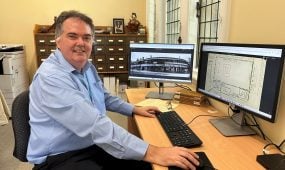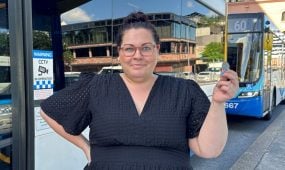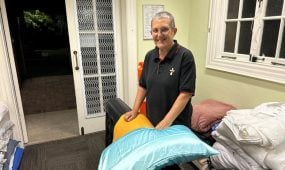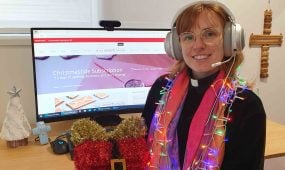Traditional Custodians: educators
Features
“I am often asked to yarn with young school students – facilitating yarning is an important role of a First Nations educator…Everything I know is from yarning, listening and learning from my family and Elders,” says Aunty Sandra King OAM
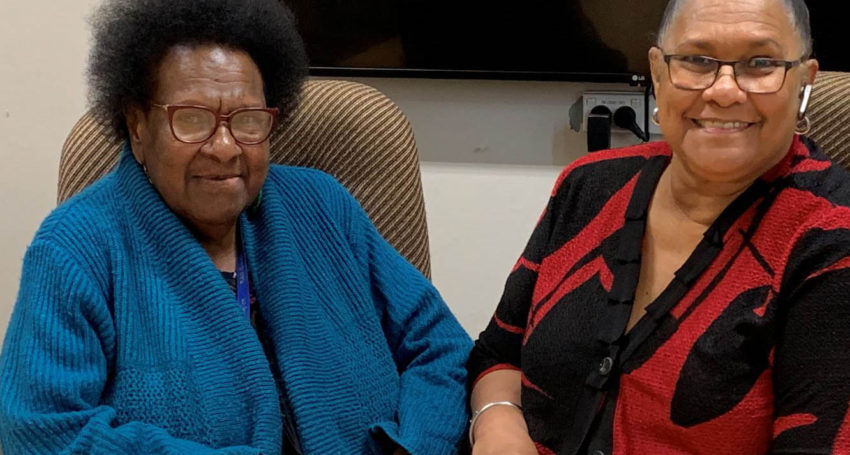
Story Timeline
What is a Traditional Owner?
My role as Reconciliation Action Plan Coordinator is to engage with the whole Anglican Church Southern Queensland community, including parishes, schools, St Francis College, ministries and Cathedral Precinct staff, by presenting speeches, organising programs, events and activities, and writing reflections and features to raise awareness of my people and First Nations matters.
Describing my life experiences and expressing my community’s views allow people to have discussions and to answer some questions they have always wanted to ask, while challenging views, breaking down barriers and helping people to see the good, the bad and the ugly side of colonialism’s legacy.
Advertisement
You are now probably thinking “What’s ‘good’ about colonising First Nations Peoples?” My answer is, from the horrors of the Frontier Wars to the various discriminatory Aboriginal Acts, scores of massacres, the Stolen Generations, the deaths in custody, the White Australia policy and the ongoing racism…we have survived. Through all the heartache our Elders and ancestors went through, I only have pride for their strength and resilience, and so I inform, engage with and speak to diverse groups of people of not only our struggles, but also of our strength and resilience. We are reviving our languages, and our traditions, cultures and stories are still being passed down, and that’s a good thing to me.
I am aware that others may have different views. Your perceptions may reflect your upbringing, education, frustration or heartache. We are all trying to cope with numerous personal or political issues in an everchanging world and sometimes making changes to our once comfortable and idolised lifestyle can be hard, as COVID-19 has shown us. Believe me when I say this, “I totally understand!”
The past decades have seen ‘new’ hashtags, words, phrases and slogans that my family, friends and I grapple with. Sometimes I do find it hard to use these new words, as these weren’t part of my Elders’ vocabulary or my upbringing. For instance, ‘climate change’ to us is basically about ‘looking after Country’ or ‘Caring for country’. Also, being classed as a ‘traditional owner’ is something I have difficulty in saying, as due to government policies and Native Title, these words are used to describe us and/or our ‘clans’ or ‘mobs’ or language groups. In the words of many Elders, ‘We are not owners of Country, we are custodians” because we belong to the land, we do not own it.
Advertisement
Over the last three decades, we have commonly been referred to as ‘Indigenous people’. This terminology simplified saying and writing ‘Aboriginals and Torres Strait Islanders’. I remember attending a Chamber of Commerce meeting in the early 1990s and hearing our Elders angrily protesting about using that word ‘Indigenous’ – they were not happy at all, as the term homogenises various First Nations peoples and undermines our sovereignty. Instead it is best practice to refer to us by our given mob’s name if known – for example, I am a Bundjalung and Quandamooka woman. If the given mob’s name is not known, then using the term ‘First Nations Peoples’ is preferred.
A lot of First Nations’ organisations and government departments still use the term ‘Indigenous’ in their business name or in their funding programs and policies. However, this is starting to change. At a First Nations business meeting last Tuesday, it was agreed that they would use ‘First Nations Peoples’ when referring to us.
I am often asked to yarn with young school students, teachers, community organisations and at government events and activities – facilitating yarning is an important role of a First Nations educator. Yarning and listening are critical parts of First Nations cultures. Everything I know is from yarning, listening and learning from my family and Elders. Their teachings and history are truth telling and therefore very important to me and my values, morals and standing in my community. I regularly say or write ‘Yarn you soon’.
So, I hope to yarn you soon.

